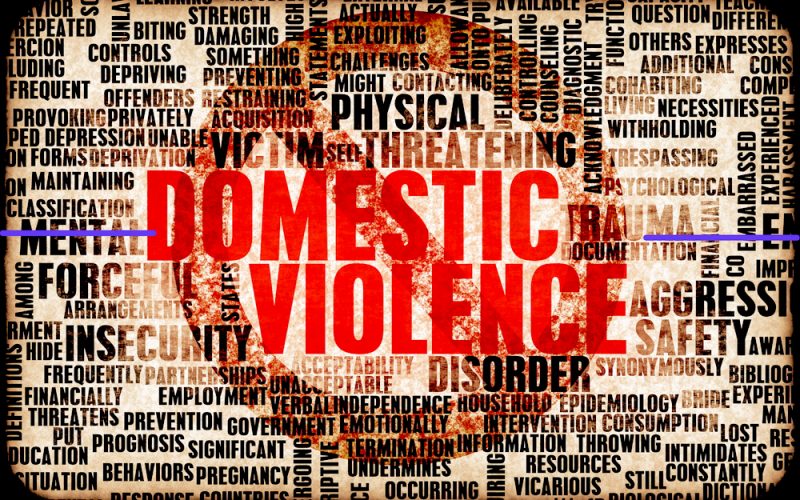 “Women want a men’s movement. We are literally dying for it.”
“Women want a men’s movement. We are literally dying for it.”
—Gloria Steinem
It’s way past time to put on the pads, guys. We’ve got to put our shoulders to the wheel of change if we’re going to stop domestic and sexual violence. Are you ready to suit up for the big game? Except, of course, it ain’t no game; the lives of our daughters and sisters, wives and mothers are on the line.
No need to recount the abominable behavior of any particular football player here, (especially since their numbers are growing daily). And, it’s not necessary to replay all the fumbles by the National Football League commissioner or team owners who are only consistent about one thing: putting profits ahead of the safety of your wife and my daughters.
Revelations of men abusing women aren’t news—sadly, they’re everyday occurrences. Why does it take abusive celebrities or pro athletes beating their wives or fiancées to grab our attention?
Since the vast majority of men don’t act violently toward those they love, why have we men become a new, deafeningly silent majority? Many of us are not even bystanders; we’re AWOL. Many of us don’t know men who speak out against the minority of men who abuse. That’s got to change.
The good news is that for nearly two generations a growing number of men of all races and ethnicities in the U.S. and around the world have followed the lead of women working to prevent domestic and sexual violence, and to redefine and transform traditional ideas about manhood, fatherhood, and brotherhood. We’ve been called all kinds of names, but many of us describe ourselves as members of the profeminist or anti-sexist men’s movement.
Profeminist men hold the simple “radical” belief that gender and sexual equality are fundamental democratic goals and that women and men should each have the same rights and opportunities. Although marginalized and largely absent from the national conversation about gender in the mainstream media, modern-day profeminist men have been engaged in a sweeping critique of manhood and masculinity since the 1970s.
Even as media messages lag far behind on-the-ground truth, a progressive transformation of men’s lives is under way. Men’s involvement in anti-sexist activism grew out of a sense of justness and fairness heightened by men’s involvement in the civil rights and antiwar movements of the 1960s. For many, those feelings easily carried over to women’s call for liberation, itself nothing less than a social justice imperative of obvious historical importance. (Acknowledging gay rights would come later.)
Despite the modest number of men involved, chinks in the armor of conventional manhood are visible, and, as our numbers grow, the chinks grow larger, threatening to crack open. Since the late 1970s, besides activities in the U.S. and Canada, profeminist men’s work is underway in Great Britain, Scandinavia, Brazil, Australia, New Zealand, South Africa, Mexico, and Central America. In more recent years India and Nepal have joined the growing list, as have a number of African nations. The roots of profeminist men’s work are deep.
In 2009, nearly 500 men and women allies from 80 countries met for four days in Rio de Janeiro at a symposium, “Engaging Men and Boys in Gender Equality.” The growing global movement, united under an alliance called MenEngage, now operates on every continent. In November, a second global symposium is being held in New Delhi. It is expected to attract more men from more countries.
In the struggle to replace conventional expressions of manhood with a profeminist vision, there’s a simultaneous cultural truth at play as we fishtail along the slippery road of gender justice. On the one hand are pro football players and other high-value male celebrities still attracting followers despite the disdain with which their tone-deaf excuses are received by an outraged citizenry. On the other are men, say, like Jason Collins, the National Basketball Association player who announced he was gay in 2013, opening the door for the NFL’s Michael Sam. These real “man’s man” sports figures stand in stark contrast to domestic abusers. Their willingness to take the national stage helped unlock the door for younger males—gay young men, of course, but many, many others—hungry for a way out of the “man box” that seeks to constrain boys and men.
Football players aren’t born to beat their wives or children. No men are. But until and unless we replace the fist and the switch with patience and a hug as tools to raise our sons and grandsons, domestic violence in our homes and sexual assaults on campuses (and elsewhere) will be men’s legacy. Brothers, it’s the fourth quarter, the clock is ticking, and there are no more time outs. What are we waiting for?
Rob Okun is author of Voice Male: The Untold Story of the Profeminist Men’s Movement. Syndicated by PeaceVoice, he is editor of Voice Male magazine (www.voicemalemagazine.org) and can be reached at rob@voicemalemagazine.org



